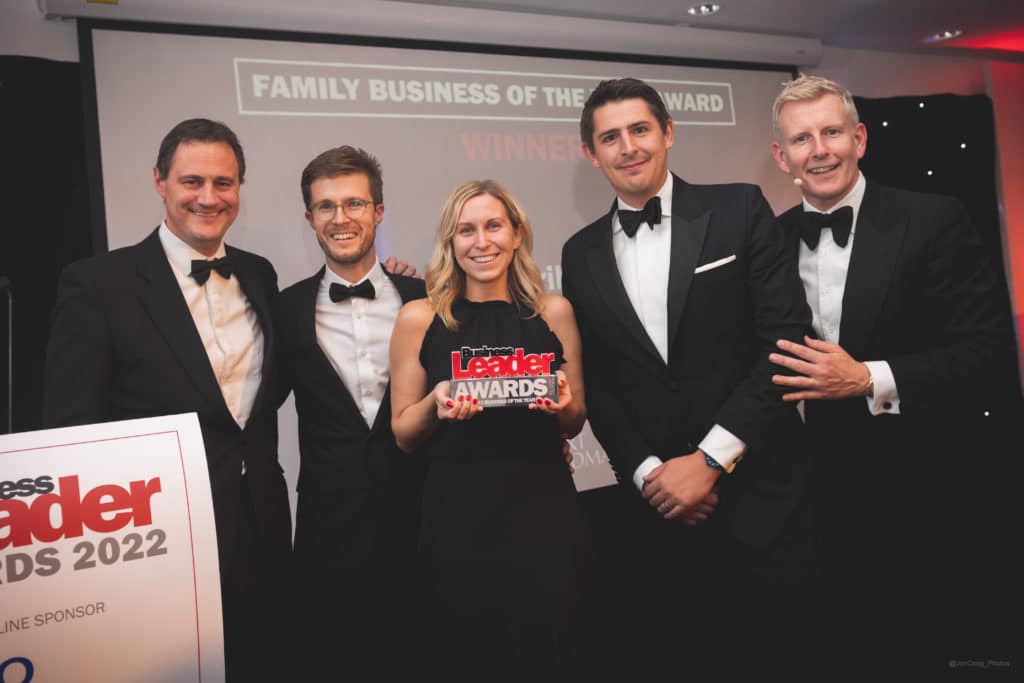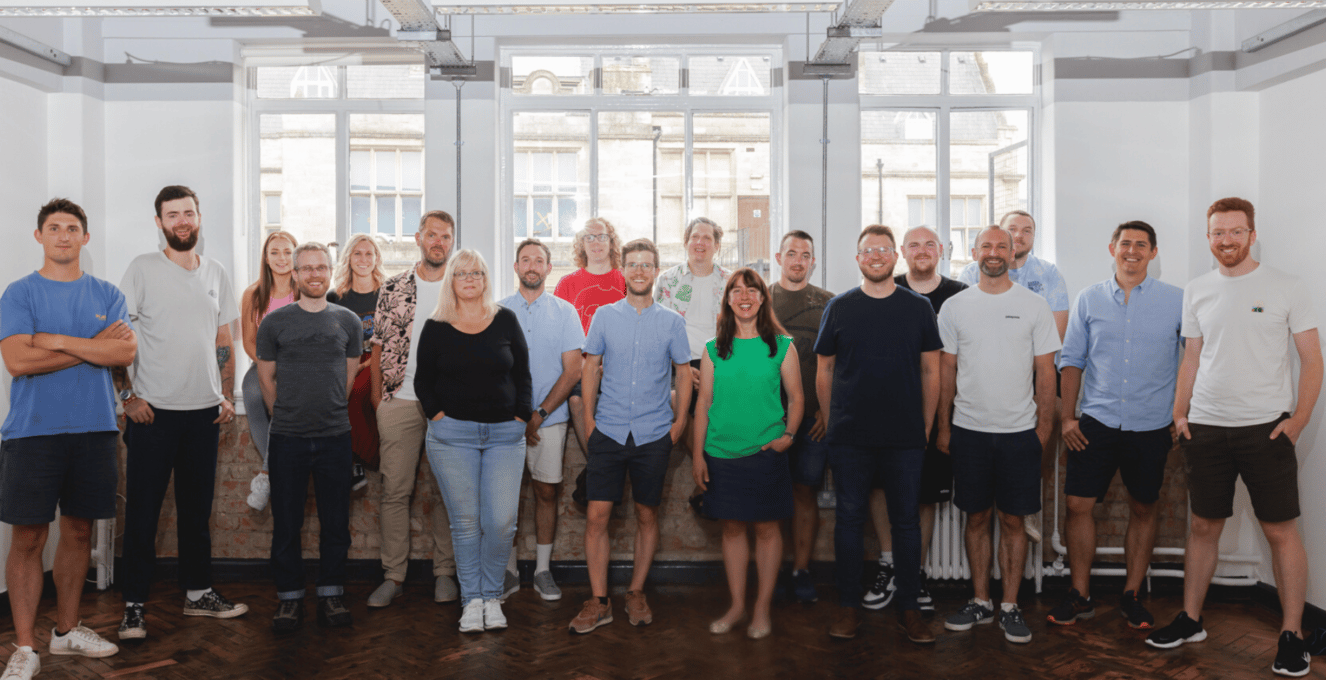If you’re a regular follower of our blog posts, you may already know a thing or two about assistive technology, accessibility, or how captions improve learning.
But did you know that Caption.Ed came to life at the hands of an NHS doctor with a dyslexia diagnosis? Or that this pioneering assistive tech platform helps small business owners boost their productivity?
In this article, we’ll outline some of the best reasons why Caption.Ed has become such a successful piece of assistive tech. So, read on to discover the best nuggets of knowledge behind this powerful tool!
7 Things About Caption.Ed You Probably Didn’t Know
Launching in time to support the rapid growth in remote and hybrid learning, Caption.Ed has become a popular accessibility tool. So what are the more interesting reasons behind this success?
An NHS doctor, a Software Engineer, and a Strategic Consultant Founded the Company (and Two of Them are Brothers)
At the helm of Carescribe–the parent company of Caption.Ed–are three co-founders, Richard Purcell, Chris Purcell, and Tom Cartwright. Chris and Rich are brothers and work together with Tom to develop Caption.Ed along with other successful assistive technology tools like TalkType.
In honour of their success, Carescribe received the award for ‘Family Business of the Year 2022’ at this year’s Business Leader Awards. Not only that but they came in as finalists in the Innovation and Technology Award.
For Rich, Chris, Tom, and everyone at Carescribe, this recognition is very welcomed!

But who are these three dynamic characters leading the company to such heights?
- Dr Rich Purcell, Director: Richard is an NHS doctor and assistive technology innovator. Rich addressed his own dyslexia needs by developing an assistive technology tool at University. He also worked as an NHS doctor while building Caption.Ed.
- Chris Purcell, Director: Chris is Richard’s elder brother. He first worked as a strategic consultant in the City, specialising in tech innovations, before joining Rich to run Caption.Ed.
- Tom Cartwright, Chief Technology Officer: Tom is a Bristol-based software engineer with expertise in leading digital product design and development within several sectors. Tom was also previously a teacher.
Dr Rich Addressed his own Dyslexia Needs in Medical School
Having gained a dyslexia diagnosis in secondary school, Richard recognised that, to achieve his potential in medicine at Bristol, he needed more support with his learning than his peers.
Using his student loan to finance the project, Richard brought in a business partner and developed an assistive technology product to help people decode and understand complex medical terminology. Naming the product Medincle, Bristol University then rolled out this innovative software to all its medical students. At the same time, Richard acquired a tonne of experience in running a business.
CareScribe Grew from 3 Staff to 30 in a Year
Over the coming years Rich was approached by several other Universities looking for support in providing captioning to students. Embracing an interesting problem with no existing solution, Richard teamed up with Chris and Tom to form CareScribe and built Caption.Ed. Together, they’ve worked hard to scale the company while promoting new and impactful assistive technology to UK universities.
By focusing on innovation, scaling the business, and managing new staff, CareScribe has grown from a team of three to a company of thirty in only 12 months. Plus, this all happened while Richard returned to his NHS doctor role to give much-needed medical support during the pandemic.

The Springboard for Developing Caption.Ed Began at Bristol University
Bristol and the South West lie at the geographical heart of Caption.Ed, particularly since Richard studied medicine at Bristol University. And it was there that Medincle, Richard’s first piece of assistive technology, rolled out to medical and healthcare students.
Richard used these experiences to then develop a captioning tool that could address new legislation but apply to students in any Higher Education context. By helping students to overcome language barriers, hearing impairment, dyslexia, or other specific learning differences, Caption.Ed is now used in over 20 universities and colleges, including Russell Group.
Caption.Ed is Transforming Outcomes for Every Type of Business, including Online Therapy
Emma Wheeler is a psychotherapist, counsellor, and mentor who supports students with mental health at university. But since Emma herself is deaf, her career depends on the ability to use lip-reading during face-to-face meetings.
“The way I work is that I need to be focused on the face of my client and actively listening during each therapy session. If I am constantly looking back and forth between captions and the camera on a video call, it is exhausting”.
During the pandemic, Emma found it very hard to run successful therapy sessions using Zoom. She was struggling with poor internet connections, glitchy visuals, and a lack of accurate transcription. And this left Emma asking students to repeat themselves or taking notes to be sure of what they were saying.
So when she discovered Caption.Ed and introduced its accurate captioning and note-taking capabilities in her sessions, everything changed. By using Caption.Ed’s transcriptions and note-taking features Emma reignited the power of her therapy sessions and has seen productivity and effectiveness increase beyond expectations.
“Caption.Ed has enhanced my life and 100% increased my productivity. You don’t have any idea how much of a difference this has made to me.”
Thanks to its Bootstrapped, Self-Funded Finance Model, Caption.Ed is More Adaptable to Users’ Needs
With Richard using his student loan to fund Medincle at Bristol University, it’s the same self-funding ethos that carries on to this day.
By receiving no finance or investment from outside sources, Caption.Ed retains its independence in decision-making. With no shareholders to be accountable to or influenced by, Carescribe can innovate needs-based, user-focused assistive technology tools and avoid making decisions based only on commercial gain.
Caption.Ed Includes a Set of Custom Dictionaries to Help Users Decode Complex Terminology
Another key USP for Caption.Ed is its custom dictionaries. Along with offering captions in 12 different languages, and the chance to record both audio and video broadcasts, custom dictionaries offer something unique.
Supporting medical students to understand complex medical terminology was of course the original inspiration for Richard at medical school. But today, Caption.Ed has an advanced set of custom dictionaries that are perfect for decoding technical jargon. Our custom dictionaries are now available for law and social science subjects.
With Caption.Ed, the Future Looks Brighter for Everyone
With such a strong team in charge, Caption.Ed continues to pioneer its needs-based innovations in assistive technology. And this is due to a founding team who understands the difference assistive technology makes.
By retaining its financial independence, Caption.Ed plans to stay focused on innovation and continue to improve accessibility for those who need it. To see if Caption.Ed can support you or the people you serve in your own context, contact our team to discuss your needs.


